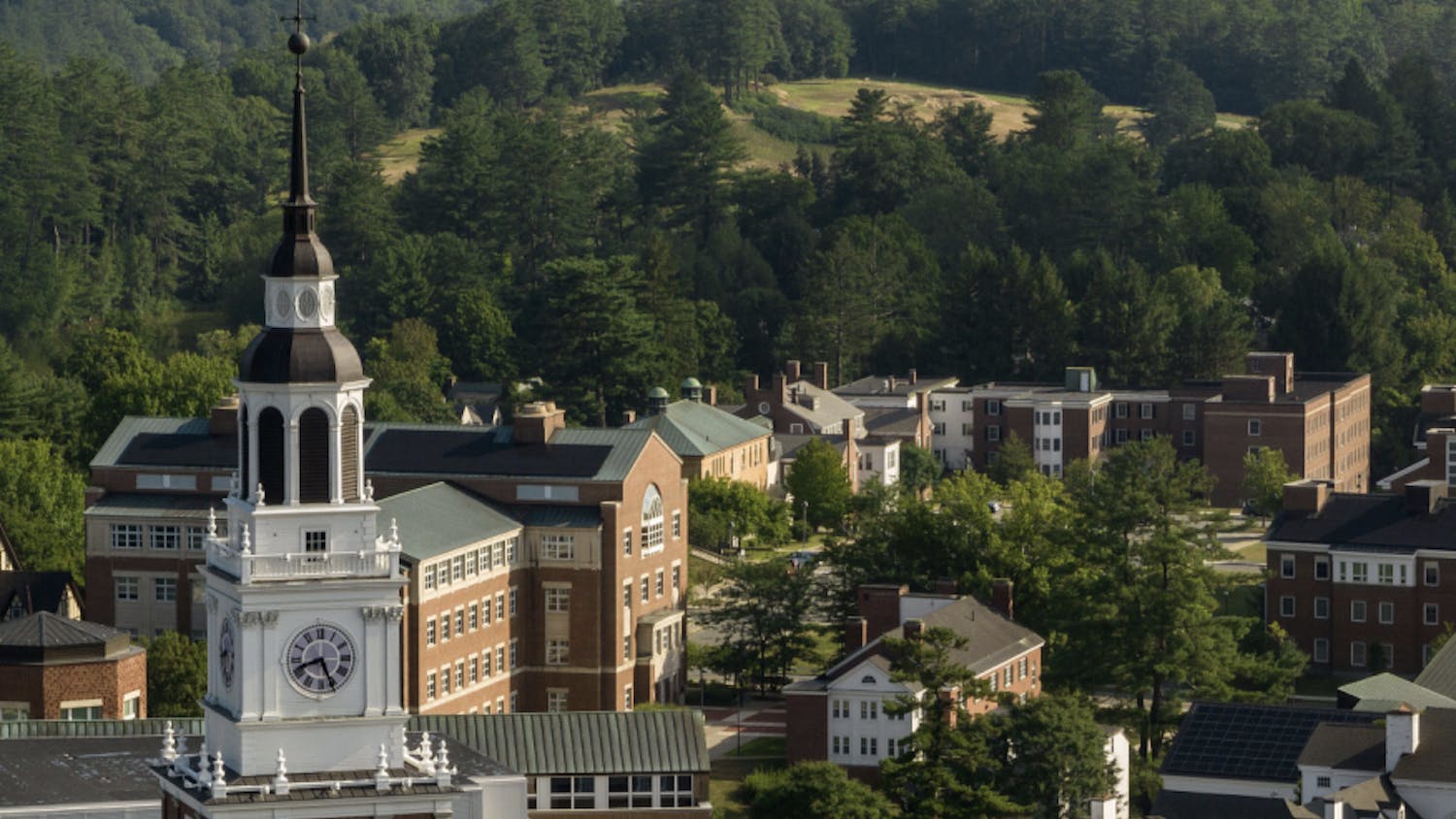About half of Dartmouth students participate in at least one off-campus program. The College’s off-campus programs office offers two types of programs: foreign study programs and language study abroad programs.
While most programs take place in foreign countries, the College also holds programs in the U.S., such as a film FSP in Los Angeles and the “Stretch,” an earth science FSP that takes students across the Western U.S.
Currently, there are 65 regular off-campus programs, including exchange programs. An astronomy FSP in South Africa, a Native American studies FSP in Santa Fe, New Mexico, an African and African American studies FSP in Ghana and an exchange program with Hebrew University will be added in the coming year.
Foreign study programs, or FSPs, bring students study abroad through a Dartmouth department. Language study abroad programs, or LSAs, focus on immersion programs to make students fluent in a language. A more advanced version, called an LSA+, brings upper-level language students abroad.
Students who studied abroad said they enjoyed interacting with a country’s culture.
For Lauren Harris ’16, this particualry meant French food. Harris participated in the French LSA+ in Toulouse and said that while she started her time abroad as a vegetarian, she began eating meat in order to fully experience French cuisine.
“I used the wrong verb tense when explaining it to my host family on the first day, so the very first food I ate when I got there was foie gras [goose liver],” Harris said. “Then I continued to eat meat there, and I am so glad I did.”
Harris said that members of her LSA+ also went to wine tasting events, which were more serious than she expected. Once, she said, participants tasted three wines over three hours.
Nick Parillo ’15, who went to Dublin for the English FSP and Paris for the French FSP, said that going to the theater and seeing films were highlights of his programs. In Dublin, he watched several indie movies a week through an Irish film society, while in Paris he went to movies to improve his French.
Tai chi and calligraphy classes further enriched cultural immersion during his time in Beijing, along with regular coursework, Jake Gaba ’16, who did the Chinese LSA in Beijing said.
In many off-campus programs, host families play a large part of the experience.
This, to Harris, was a favorite part of the experience.
“They really took me in and did their best to give me an amazing and authentic experience,” Harris said. “Sometimes I wanted to stay home, and they convinced me to go out and explore.”
Parillo said that he and his host father in Paris bonded over rugby and ended up going to a rugby championship game together.
“It was between Ireland and France, so that was really fun for me after my two terms abroad in these two places,” he said.
Many Dartmouth off-campus programs include a week-long break in the middle of the term, allowing for travel.
During her program, Harris traveled to Barcelona and Ireland, as well as Paris.
Gaba’s entire class traveled to Tibet.
“We were out walking and met a group of Tibetan women about our age, who took us to a restaurant and ordered for us,” Gaba said. “Then they took us to a town square, where young people were doing choreographed line dances and we got to join in.”
During his time in China, Gaba produced a video of himself dancing to Bruno Mars’s “Treasure” through China. The video went viral, amassing more than 600,000 views on YouTube and more than 300,000 views on YOUKU, a Chinese video-sharing website, since he uploaded it in January 2014.
An off-campus program that does not give academic credit is the First-Year Fellows program, which links students with a D.C. internship with non-governmental organizations, think-tanks, representatives and other policy makers over freshman summer, when finding these intern
ships would normally be more difficult, Ben Rutan ’17, who interned at Truman National Security Project and the Center for National Policy said.
Rutan said that he enjoyed that students met a mentor, a Dartmouth alum who worked in the same office as them.
“The Dartmouth connection is a great connection to have — they are generally higher up, so it gives us a chance to talk to someone who is really involved and in and out of policy-making,” he said.
Due to the D-Plan, all students can fit in an LSA program even if they are pre-med or double majoring, executive director of off-campus programs John Tansey said.
“I think every Dartmouth student should have an off-campus experience on their radar — whether it’s a study abroad in a foreign country, another program within the U.S. or for some reason, if one of those types of programs cannot be fit in, something through Dickey Center or Tucker Foundation,” he said.
Tansey said that one of the mistakes that applicants frequently make is not realizing how fast the deadline approaches. Many applications are due Feb. 1, including for those in freshman summer, he said.
“Get to know one of the faculty members teaching one of your fall-term classes because you’ll be asked for faculty recommendations if you apply for a program,” Tansey said. “Don’t stress out if they don’t know them that well because everybody is in the same boat — we understand that you have only one been here one term when they are really submitting their applications for the next year.”



